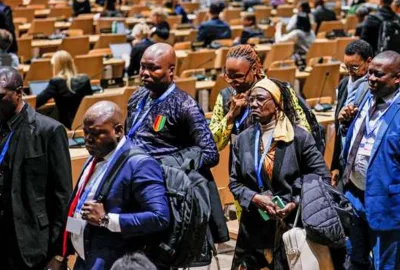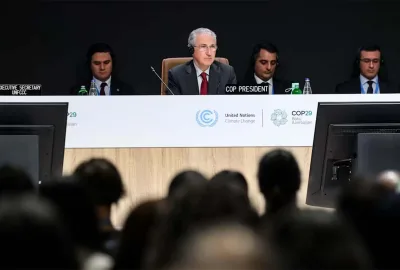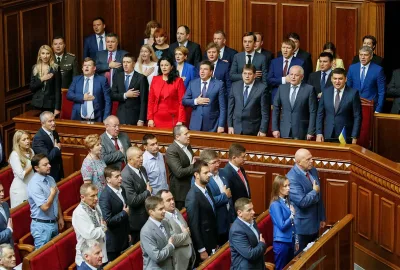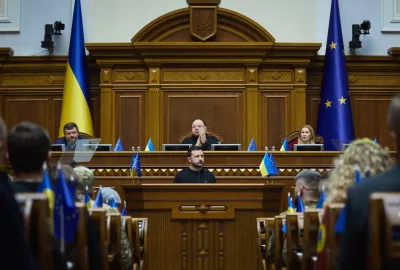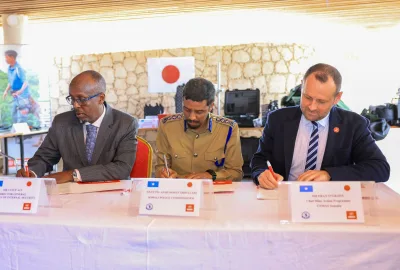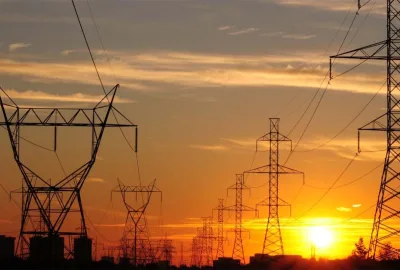By: Omar Mohamud Farah (Dhollawa) Before the collapse of the last Somali Government in 1991, Somalia…
 By: Omar Mohamud Farah (Dhollawa)
By: Omar Mohamud Farah (Dhollawa)
Before the collapse of the last Somali Government in 1991, Somalia had a very strong centralized system where one person rings the bell and the rest follow the orders. This one-man show mentality has lead Somalia into the current political, social and economic upheaval particularly in the geographical area where the seat of the bell bearer was situated. Unfortunately, few people bother to ask why the whole governmental organization, from tea boy to president, has collapsed once and for all. I wish we all know why.
Nevertheless, in early June 2012, the interim Somali constitution was signed by six Somali signatories. In the constitution, a federal system has been adopted with the intention of creating federated States that will form a Somali Federal Government (SFG). State governments will consists of at least two united regions to become member of the Somali Federal government. Additionally, the interim constitution rules that the federal government is the sole entity that will be responsible the country’s Foreign Affairs; National Defense; Citizenship and Immigration; and Monetary Policy. Not surprisingly, this constitutional arrangement has infuriated a few tenacious individuals who question the applicability of the federal system in Somalia. However, these individuals fail to empower their argument with any clear logic. They dismissively call the constitution a foreign product (I wonder what cars they drive and what brands they wear) and not a homegrown constitution. As a matter of fact, it is very common in Somalia for someone to say one thing while he means something else, even though most of his audience are fully aware of where the speaker is heading ideologically.
Now, as I have empathy to their concern, I would like to take the opportunity to decipher and interpret their pressing issues and also provide a few points that could remedy their fear.
Economically, for many years, Somalia’s main financial income use to come from different sources including taxes collected by the government from Mogadishu (the capital of Banadir), Berbera (in today’s Somaliland), Kismayo (in today’s Jubbaland State) and Bosaso (in today’s Puntland State) ports and airports respectively. Additionally tax imposed on the produce from the riverine area was vital for the nation’s economy. Furthermore, international community has been providing assistance in the form of aid or budget subsidy. Similarly, in fairness, the Somali Diasporas in the Arab Peninsula have been also unofficially injecting sizable amount of money to Somalia from 1970s to 1980s.
In the employment sector, the Somali’s biggest job provider use to be the Somali government in the public service and their employees could be anywhere and in any position in Somalia from Raas Haafuun to Raas Kaambooni and in between. In this case, Mogadishu had been the hub and the distributer of the Public service jobs from laborer to landlords, and from bankers to policy makers. Mogadishu also use to be the Headquarter of all government institutions including education, health, defense as well as private industries. Unfortunately, that role has disappeared 23 years ago, and it is about to be replaced by emerging capitals of federal States. Surely, Somali capital will exist but will be governed by different and unique bylaws to represent the new Somalia.
So what is causing all the fuss? If one were to take a look at the setup of Somalia’s regional map, it is obvious that some regions, particularly the central regions, are either not yet fully tapped their resources or simply it is environmentally difficult to domesticate the nature. As a result of this the inhabitants of these areas have historically been heavily dependent on the financial subsidy of the central government and were also dominant in the public service. Now, the federal system will be based on federated States and each State will adopt an inward policy where they will apply a policy intended to develop its locals economically, socially, and physically as a priority.
Now, I assume, it is clear why critics of federalism are panicking and writing articles after articles by using all available sophisticated microscopic devices to find, painstakingly, the shortcomings of federal system. The critics are from central regions and they fall in the categories that I explained above where progress is yet to be made for whatever reason. These critics strongly felt that in the current constitutional arrangements their areas will be left out economically and politically and so to them individually. In their eyes, this will happen when each State took the control of its destiny and all positions are dominated by locals. This is a legitimate concern, particularly when the Federal Government’s leadership to subsidize and support the disadvantaged areas in the country is missing.
So, what can the Federal government should do about the concerns of these individuals? In my view, three things are important to consider to address the concerns of these citizens. Firstly, the government has to allocate special funding to subsidize areas that are not self-sufficient and implement developmental projects so they can become economically viable in the future. Secondly, the federal government has to establish a commission that oversees the accessibility of federal government jobs to make sure that it is not dominated by a particular group. Thirdly, the government has to carry out a social engineering program that can change the clan based mentality especially in the area of employment, so business community can employ the most qualified person for the job rather than through kinship. If these conditions are met, I strongly believe the critics of the federalism will find the economic and the political assurance they need. And ultimately, the critics will be able to redirect their energy to the unfolding tragedies in Lower Shabelle, efforts to explore and adopt a good governance, the preventing our youth from killing themselves in the process of killing innocent people, and finally uniting all Somalis under the umbrella of Federalism like USA, Australia and Canada, the most prosperous nations in the world.
Omar Mohamud Farah (Dhollawa)
Chairman of Somali-Australian Advisory Group (SAAG)
How to Submit an Op-Ed Article?
Horseed Media accepts opinion articles about a subject, the Op-Ed section. All entries must be original and exclusive to Horseed Media. We do not consider that the articles already published on another website, so you do not submit an article that you have already sent elsewhere. Please do not send your articles in PDF format. More info Click here


